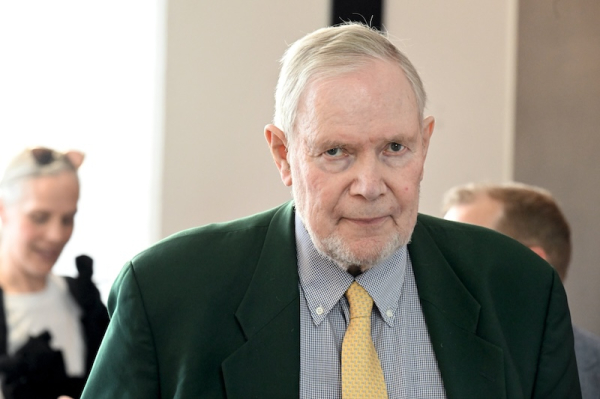
Former Prime Minister Paavo Lipponen criticises the exclusion of Prime Minister Petteri Orpo from yesterday’s Nato summit. LEHTIKUVA
- Previous Article Healthcare sector faces worker shortage but insists on professional skills and language proficiency
- Next Article Finland’s climate warms faster than global average
Former Finnish Prime Minister Paavo Lipponen has sharply criticised the recent Nato summit in Helsinki, alleging it violated Finland’s constitution. Writing in Hufvudstadsbladet, Lipponen called the decision to exclude Prime Minister Petteri Orpo from the meeting “unprecedented and unconstitutional.”
The summit, co-hosted by President Alexander Stubb and Estonian Prime Minister Kristen Michal, focused on Baltic Sea security, particularly the protection of critical underwater infrastructure.
Attendees included Nato Secretary General Mark Rutte, German Chancellor Olaf Scholz, and Swedish Prime Minister Ulf Kristersson, as well as Finnish Defence Minister Antti Häkkänen representing the government.
Lipponen argued that the summit’s focus on hybrid threats, such as the recent undersea cable sabotage allegedly linked to Russia, required broader representation from Finnish ministers. He noted that responsibility for such issues spans multiple government departments, making the absence of Prime Minister Orpo—or his official substitute, Finance Minister Riikka Purra—a breach of protocol.
“The president’s office has invented an ad hoc protocol that bypasses parliamentary norms. This raises questions about Finland’s commitment to democratic principles,” Lipponen wrote.
Lipponen likened the decision to governance models seen in Baltic states during the 1920s and 1930s, warning against centralising authority in the president’s office. He also criticised President Sauli Niinistö for a similar exclusion during a previous Nordic summit, calling for clearer rules on who represents Finland at international gatherings.
The debate has reignited concerns about Finland’s constitutional framework for managing foreign and security policy. Former Prime Minister Matti Vanhanen recently suggested in Suomenmaa that the Finnish Parliament should address this issue promptly, particularly as Nato commitments grow.
Vanhanen warned that future Nato meetings could involve contentious decisions, such as raising defence spending, which requires parliamentary oversight.
President Stubb defended the summit’s format, highlighting its urgency following the Eagle S tanker incident. The tanker, suspected of damaging undersea cables in the Gulf of Finland, has been seized by Finnish authorities. Stubb emphasised the importance of Nato’s enhanced presence in the Baltic Sea to deter future threats.
Despite Lipponen’s critique, the summit concluded with strong commitments from Nato states to increase maritime surveillance and improve infrastructure protection. Leaders also announced the launch of “Baltic Sentry,” a Nato operation aimed at enhancing security in the region.
HT
- Previous Article Healthcare sector faces worker shortage but insists on professional skills and language proficiency
- Next Article Finland’s climate warms faster than global average
Source: www.helsinkitimes.fi
